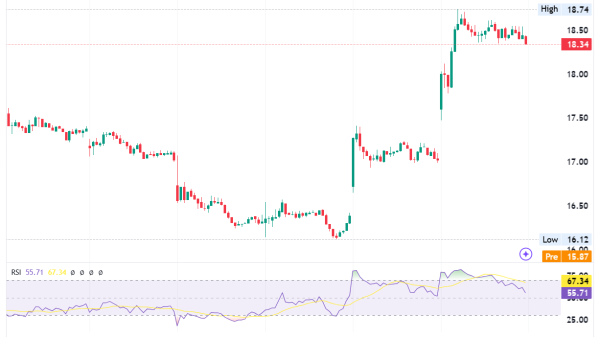What Are Stock Appreciation Rights?
Stock Appreciation Rights (SARs) are a type of employee compensation linked to the performance of the company’s stock, offering a way to participate in the company’s financial success without the immediate need to own stock.
This mechanism is designed to align the interests of employees with those of shareholders, as both parties benefit from an increase in stock value. Stock Appreciation Rights are especially attractive in fast-growing companies or startups that wish to conserve cash while incentivizing their employees.
Understanding Stock Appreciation Rights
Stock Appreciation Rights provide the right, but not the obligation, to receive a bonus equal to the increase in value of a set number of shares over a predetermined period. This bonus can be paid in cash, shares, or a combination thereof, depending on the specific terms of the SAR agreement.
The fundamental premise of SARs is quite straightforward: an employee is granted a right to receive a benefit equal to the appreciation in the company’s stock price over a set period. For example, if SAR is granted when the company’s stock price is $10, and it rises to $20, the employee benefits from the $10 increase in stock price.
Stock Appreciation Rights (SARs) function similarly to stock options in that they provide the holder with the opportunity to benefit from the increase in value of a specified number of shares over a certain period. Like stock options, SARs allow employees to capitalize on the growth of the company’s stock value.
Stock Appreciation Rights vs Stock Options
The key distinction, however, lies in how SARs are executed: employees receive the financial benefit of the increase in stock price without needing to expend cash to buy the shares outright.
This characteristic of SARs eliminates the upfront purchase cost required by traditional stock options, offering a more direct path to gain from stock price appreciation.
Basically, while both instruments aim to incentivize employees through the company’s success, SARs streamline the process, providing rewards based on stock performance without the initial financial barrier posed by stock options.
A stock option grants an employee the right, but not the obligation, to purchase a specific number of shares of the company’s stock at a predetermined price, known as the exercise or strike price, within a set time frame. This financial instrument is a cornerstone of employee compensation, especially in startups and technology companies, aiming to align the interests of employees with those of the company and its shareholders.
The idea is that if the company’s stock price rises above the strike price, the employee can buy shares at the lower price, potentially earning a profit on the shares if they are sold at market value. This potential for profit incentivizes employees to contribute to the company’s success, as their financial well-being is directly tied to the company’s performance.
Stock options come with vesting periods, meaning employees earn the right to exercise their options over time, which encourages long-term commitment to the company.
While stock options can offer substantial financial rewards if the company’s stock price increases, they also carry the risk of being worthless if the stock price falls below the exercise price, making them a potentially volatile component of employee compensation.
Key features of SARs
Grant price: The stock price at the time SARs are granted, which serves as the baseline for calculating future appreciation.
Vesting period: The time period the employee must wait before being able to exercise their SARs. This encourages long-term commitment.
Exercise period: Once vested, there is often a window of time during which SARs can be exercised.
Settlement method: SARs can be settled in cash, shares of the company’s stock, or a combination of both.
Advantages of Stock Appreciation Rights
No upfront cost to employees: Unlike stock options, SARs do not require employees to purchase anything to benefit. This can be particularly appealing to employees who may not have the financial resources to buy stock options.
Flexibility in settlement: Companies can design SARs to be paid out in cash, which can be attractive to employees who wish to avoid the complexities and potential tax implications of owning actual shares.
Alignment of interests: By tying employee compensation to the performance of the company’s stock, both the company and the employee work towards the common goal of increasing the company’s value.
Tax planning: SARs offer potential tax planning advantages, depending on how they are structured and the jurisdiction in which they are granted.
Considerations and challenges
Tax implications: The way SARs are taxed can vary significantly by country, and sometimes the taxation at the time of exercise can be at higher rates, especially if settled in cash.
Dilution: If SARs are settled in stock, they can lead to dilution of existing shareholders’ equity.
Cost to company: Companies need to carefully manage the potential financial impact of SARs, especially if the company’s stock price appreciates significantly.
Complexity and administration: SARs require careful planning, legal advice, and administration to ensure compliance with financial and tax regulations, which can be complex and vary significantly across jurisdictions.
Implementing SARs
Implementing a SAR program requires careful consideration and planning:
Designing the plan: The company must decide on key features such as eligibility, vesting conditions, the method of settlement, and exercise procedures.
Legal and tax considerations: It’s essential to structure SARs in compliance with local laws and tax requirements, which may necessitate consulting with legal and tax professionals.
Communication: Clearly communicating the details and benefits of the SAR program to potential participants is crucial for its success and employee buy-in.
Administration: Companies need to establish processes for tracking vesting periods, exercises, and settlements of SARs, which can be complex, especially in larger organizations.
In summary, Stock Appreciation Rights offer a versatile and effective way to incentivize employees, aligning their interests with those of shareholders and driving the company towards shared success.
Nevertheless, the implementation of a SAR program requires careful planning and ongoing management to navigate the potential complexities and ensure it meets the strategic objectives of the company. With thoughtful design and execution, SARs can be a powerful tool in the compensation toolkit, providing significant benefits to both employees and the company.
The post What Are Stock Appreciation Rights? appeared first on FinanceBrokerage.




























